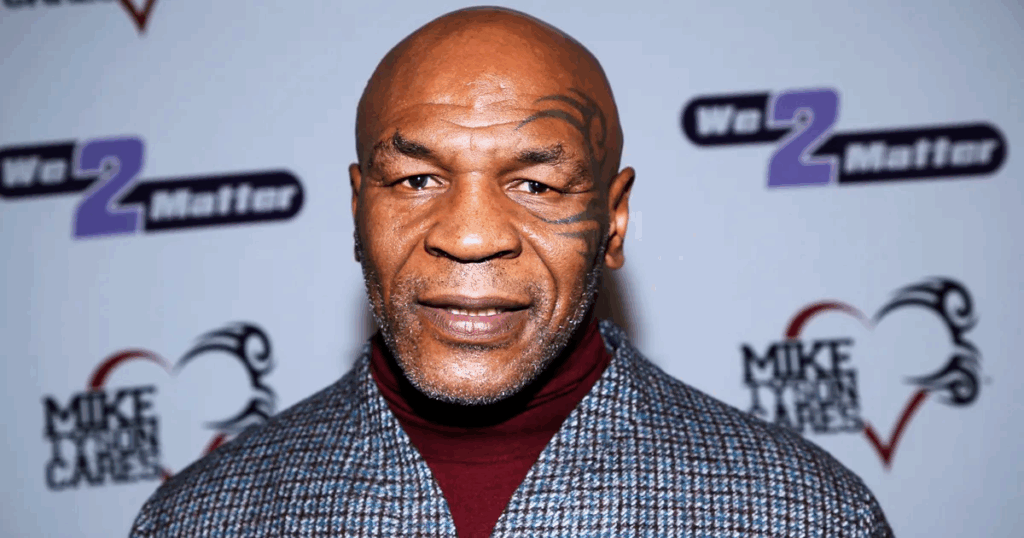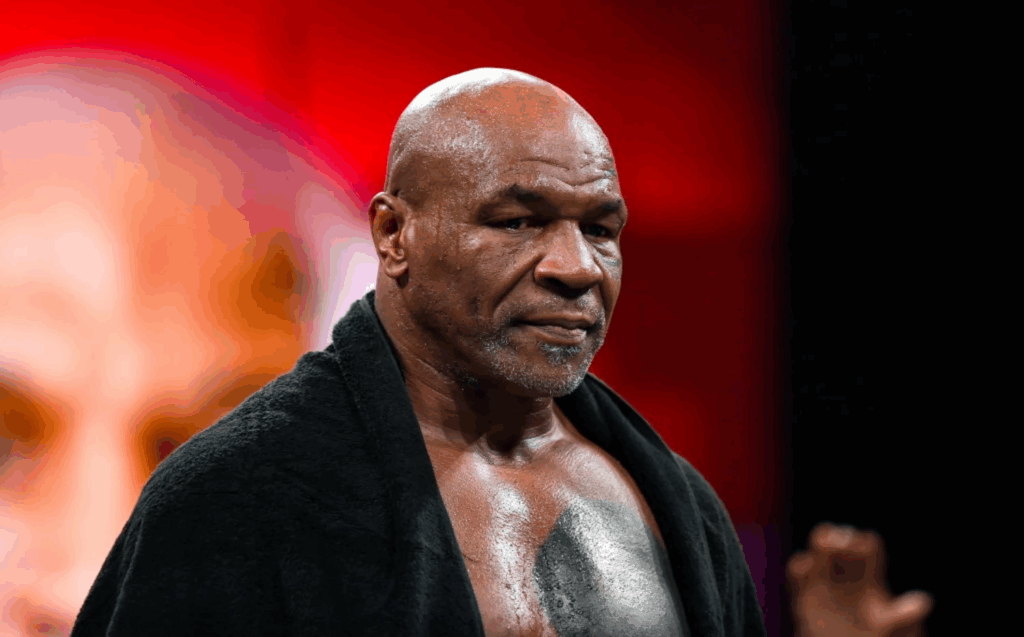
Tyson’s Role in Boxing Today
When Mike Tyson is not competing inside the ring as he once did, the former heavyweight champion of the world is far from removed from the sport that turned him into an international superstar. His influence is still deeply felt in and around the boxing community—through his work teaching and inspiring a new generation of fighters about both the intricacies of the sport and the hard work it takes to succeed. Tyson’s present incarnation is as a mentor, ambassador and still-living legend whose words continue to mold the narrative of the sport.
Mentoring Young Fighters
One of Tyson’s most meaningful contributions to boxing today is his mentorship of up-and-coming fighters. Having experienced the extreme highs and devastating lows of the sport, Tyson offers invaluable guidance on what it takes to succeed—not just physically, but mentally and emotionally. His advice goes beyond technique and training; he often speaks to the importance of discipline, humility, and self-awareness.
Tyson regularly interacts with young athletes through his gym, media appearances, and personal connections. He has taken particular interest in fighters who remind him of himself—young, hungry, and often coming from difficult backgrounds. Rather than just teaching them how to fight, Tyson tries to prepare them for the pressures of fame and the challenges of personal growth.
Some of the ways Tyson supports the next generation include:
- Advocating for mental health and emotional maturity in combat sports
- Offering one-on-one training sessions
- Sharing career advice and personal stories on podcasts and interviews
- Promoting fighters through his own platforms and public appearances
Tyson’s Continued Influence on Boxing
Even decades after his prime, Tyson’s influence remains strong within the boxing world. His aggressive style, psychological warfare, and physical intensity continue to inspire fighters across all weight classes. Many athletes today still study Tyson’s early fights as a blueprint for explosive success in the ring.
His legacy also extends into broadcasting and media. Tyson is a frequent guest analyst, sharing technical breakdowns and historical insights that reflect his deep knowledge of the sport. His platform, including the Hotboxin’ with Mike Tyson podcast, gives boxing fans access to candid conversations with legends, trainers, and current fighters.
In addition:
- Tyson’s name continues to be used in promotional material and marketing for fights
- Documentaries, films, and books regularly revisit his influence on boxing history
- Video games and training programs still feature his likeness and techniques
Ultimately, Tyson’s continued involvement helps preserve the sport’s rich tradition while bridging the gap between eras. His voice carries weight—not just because of what he accomplished, but because of how openly he has reflected on what those accomplishments meant. For boxing, Mike Tyson is not just a figure of the past—he is a force still shaping its present and future.
Business Ventures and Investments
Since retiring, Mike Tyson has shown there is life outside of the ring. A natural opportunist, and bodybuilder to boot, Tyson has turned his incredible fame and popularity into lucrative business enterprises that span various sectors. From pot to media, he is working to create a new persona as entrepreneur and entertainer that is inspired by his background but also shaped by his new interests.
Tyson’s Cannabis Business
One of Tyson’s most lucrative endeavors is in the marijuana space, where he is at the forefront of commercializing and researching wellness products derived from pot. Tyson has been open about using cannabis to cope with has helped ease his pain as well as anxiety, and trauma and has used this first-hand experience to develop a healing and personal transformation focused brand.

Key components of his cannabis business include:
- Tyson Ranch – A premium cannabis company he founded to cultivate and distribute marijuana products, as well as promote cannabis education and wellness.
- Tyson 2.0 – A rebranded and expanded line launched in 2021, offering THC and CBD edibles, flowers, concentrates, and wellness products across major dispensaries in the U.S. and abroad.
- Product collaborations – Tyson 2.0 has partnered with other major cannabis brands and celebrities, making it one of the most recognizable names in the space.
In addition to retail products, Tyson has expressed interest in opening a cannabis-themed resort in California, complete with a luxury hotel, music festival grounds, and a research center. This ambitious project is still in development but has already generated significant media attention.
Tyson’s Ventures in Media and Entertainment
Tyson’s charisma and larger-than-life personality have naturally led him into media and entertainment—fields where he has found unexpected success and redemption. Over the past decade, he has rebuilt his public image by embracing honesty, humor, and reflection.

Notable media ventures include:
- Film and TV Appearances – Tyson’s memorable cameo in The Hangover (2009) was a turning point, revealing a humorous and self-aware side of the former champion. He has since appeared in various films, series, and documentaries.
- “Mike Tyson: Undisputed Truth” – His critically acclaimed one-man Broadway show, later turned into an HBO special, featured raw storytelling about his life, career, and struggles.
- “Mike Tyson Mysteries” (2014–2020) – A comedic animated series on Adult Swim where Tyson voiced a fictional version of himself solving absurd cases alongside a talking pigeon.
- Hotboxin’ with Mike Tyson – A successful podcast that blends celebrity interviews with deep discussions about personal growth, addiction, mental health, and life philosophy.
These media projects have not only extended Tyson’s reach into new audiences but also humanized him in ways few could have imagined during his peak boxing years. Today, he is viewed by many not just as a former athlete, but as a cultural figure who has embraced change, growth, and authenticity. Through these ventures, Tyson continues to evolve—proving that his second act may be just as impactful as his first.
Lasting Legacy
The impact Mike Tyson made in his sport — and throughout sports culture at large — is deeply felt and far reaching. The relentless mixture of speed, power and psychological intensity redefined the heavyweight division’s possibilities, and his dramatic life story has spanned the spectrum from tragedy to one of inspiration touching themes of sports, redemption and religion. Tyson’s legacy is much larger than the sum of his successes; it’s a model of how a boxer can influence generations of not only fighters but also those outside the ring.
How Mike Tyson Changed the Heavyweight Division
Before Tyson emerged on the scene, the heavyweight division was dominated by tall, methodical fighters who relied heavily on reach and endurance. Tyson flipped that narrative completely. At just 5 feet 10 inches, he brought a ferocity, compact explosiveness, and crowd-pleasing style that made heavyweight boxing exciting again.

Key ways Tyson reshaped the division:
- Aggressive short-range fighting – Unlike most heavyweights, Tyson excelled at getting inside quickly and landing devastating combinations.
- Speed and footwork – His hand speed rivaled that of middleweights, and his dynamic head movement made him difficult to hit cleanly.
- Psychological dominance – Tyson’s fights were often won before the first punch, thanks to his icy demeanor and fear-inducing reputation.
- Revitalization of boxing’s popularity – In the 1980s and early 1990s, Tyson brought mainstream attention back to boxing, drawing massive pay-per-view audiences and becoming a global phenomenon.
Tyson didn’t just win fights—he made statements. His style forced a shift in training, strategy, and matchmaking across the division. Many future champions cited him as a direct influence, and his early career highlights are still studied by fighters today.
Tyson’s Place in the Boxing Hall of Fame
In 2011, Mike Tyson was inducted into the International Boxing Hall of Fame, joining the ranks of the all-time greatest to have ever walked the earth. The induction was not only in recognition of his accomplishments in the ring, where he became the youngest heavyweight champion and unified all the major titles, but also his lasting impact on the sport.
Fans and fellow athletes celebrated his Hall of Fame induction. It was a point of recognition for a career that had been anything but smooth, but which was unquestionably historic. Tyson is also in the World Boxing Hall of Fame, which further attests to his legendary legacy.

Beyond the accolades, Tyson’s legacy is visible in:
- The ongoing influence of his fighting style on younger boxers
- His cultural presence in sports, entertainment, and media
- His evolution as a symbol of personal growth and reinvention
The Mike Tyson story still reverberates because it is about so much more than boxing. It’s about overcoming adversity, descending from grace and giving life new meaning. His legacy is one of unbridled talent, manifold impact, and the potential for human development — something that will never be replicated in combat sports.